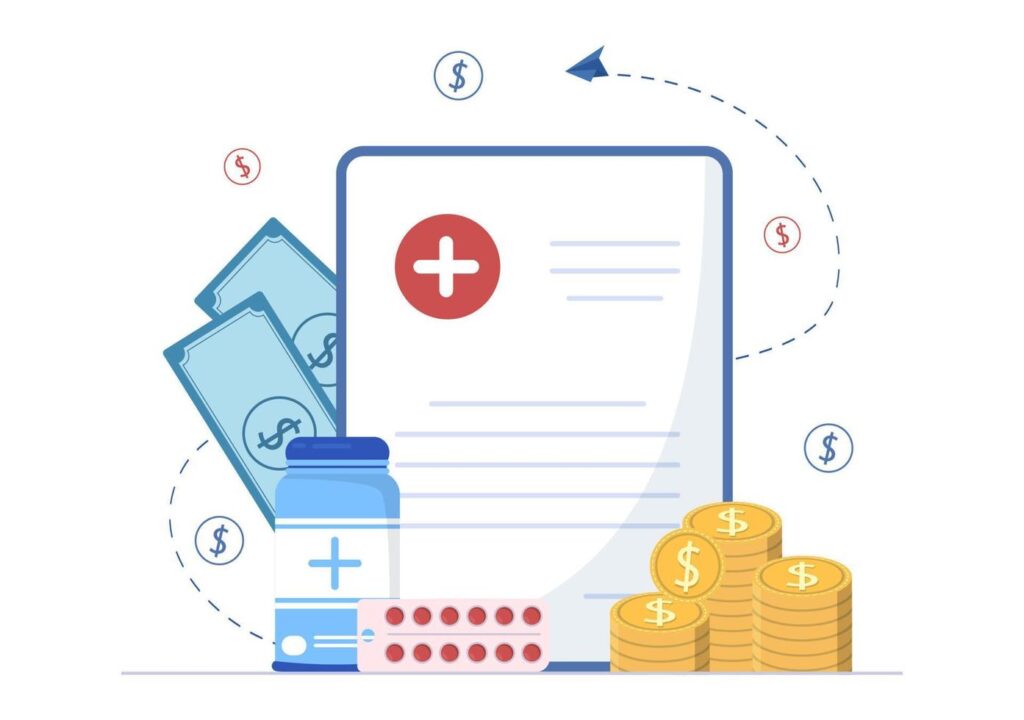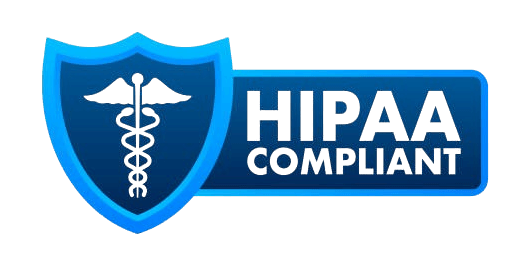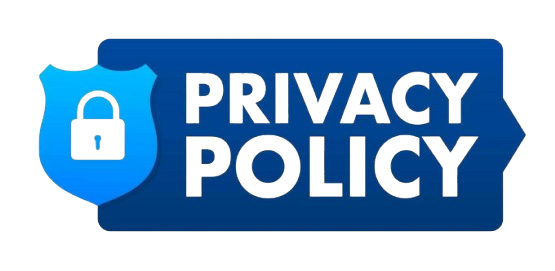Recoupment in Medical Billing

Recoupment in medical billing occurs when insurance companies take back previously paid reimbursements, often due to overpayments, coding errors, or compliance issues. For providers, these recoupments can feel like unexpected financial setbacks that disrupt revenue cycles and create unnecessary stress.
BLOG OUTLINE
- What is Recoupment in General (and how is it Pronounced)?
- What is Recoupment in Medical Billing?
- Types of Recoupment in Healthcare
- Why Providers Should Care About the Type of Recoupment
- Examples of Recoupment in Medical Billing
- Flowchart: The Recoupment Process in Medical Billing
- Recoupment vs. Other Common Terms in Medical Billing
- How to Handle Recoupment Requests
- How Recoupment Affects Healthcare Providers
- How to Respond to a Recoupment Letter
- Quick Table: Reason → What to Verify → Best Response
- Strategies to Deal with Recoupment
- How a Medical Billing Company Can Help Providers with Recoupment
- Conclusion
- FAQs
What is Recoupment in General (and how is it Pronounced)?
When people hear the word recoupment, they often associate it with getting money back, and that is exactly what it means. In a general financial and legal context, recoupment refers to the process of reclaiming funds that were overpaid, wrongly paid, or owed due to an error. For example, in finance or law, a party may use recoupment to recover debts, deduct losses, or balance out prior payments.
The correct pronunciation of the term is “ri-koop-ment”. This clarity matters because recoupment is used not only in healthcare but also in business contracts, tax settlements, and legal claims.
In simple terms, recoupment is a recovery mechanism, whether it is a bank recovering excess payments, an employer reclaiming overpaid wages, or an insurance company correcting payment mistakes. Understanding this broad definition sets the stage for how recoupment applies to medical billing, where payers use it to adjust claims and recover overpayments from providers.
What is Recoupment in Medical Billing ?
Recoupment in medical billing is the process where insurance payers recover money they previously reimbursed to a provider, usually due to overpayments, claim errors, or compliance issues. Unlike a claim denial, which stops payment upfront, recoupment happens after a provider has already been reimbursed, making it feel more like a “takeback” of funds.
Insurance carriers use recoupment as a way to correct overpayments or billing errors. This could include:
- Duplicate claim submissions that were paid twice.
- Incorrect coding or modifier usage that led to an overpayment.
- Coordination of Benefits (COB) errors when multiple insurers are involved.
- Audit findings that show services were billed outside of coverage rules.
The Centers for Medicare & Medicaid Services (CMS) has strict rules on overpayment recovery. Under federal guidelines, providers are required to report and return identified overpayments within 60 days, or they risk compliance violations and potential penalties. This shows how serious recoupment is in the healthcare industry. It is not just about correcting mistakes, but also about ensuring compliance with payer policies and federal law. For providers, understanding recoupment in medical billing is critical because it directly impacts cash flow, compliance, and revenue cycle stability. It is one of the most important areas where billing accuracy and payer communication come into play.
Types of Recoupment in Healthcare
Not all recoupments in medical billing happen for the same reason. Insurance companies, Medicare, and Medicaid may apply different recoupment methods depending on the source of the overpayment. Understanding these types helps providers identify risks and prepare better defenses. Here are the most common types:
| Type of Recoupment | Description | Common Triggers |
|---|---|---|
| Retrospective Audit Recoupment | A payer reclaims payments after reviewing claims and medical records. | Incorrect coding, lack of documentation, medical necessity issues. |
| Coordination of Benefits (COB) Recoupment | Happens when more than one insurer is involved, and the wrong payer reimbursed the claim first. | COB errors, incorrect primary/secondary insurance assignment. |
| Duplicate Claim Recoupment | When the same claim is paid twice by mistake. | Claim resubmissions, system errors. |
| Contractual Adjustment Recoupment | Based on provider contracts where overpayments are corrected through adjustments. | Misapplied contracted rates, bundled services. |
| Medicare/Medicaid Overpayment Recoupment | Required by federal law; government payers reclaim excess funds within defined timeframes. | Compliance reviews, OIG/CMS audits, improper billing. |
Why Providers Should Care About the Type of Recoupment
Because not all recoupments are the same. An audit-based recoupment might mean pulling together strong medical documentation, while a COB issue could be as simple as fixing a patient’s insurance details. Government-related recoupments, on the other hand, can be the most serious since CMS enforces strict deadlines and penalties. Knowing exactly what type of recoupment you are dealing with is the first step to taking the right action and protecting your revenue.
Quick Tip: Always read the recoupment notice carefully before responding—it often contains clues about the cause, deadlines, and the best way to appeal
Examples of Recoupment in Medical Billing
Understanding recoupment in medical billing is easier when we look at real-world situations. These examples show how overpayments happen and why insurers reclaim funds:
1. Overpayment due to Incorrect Modifier
- A provider bills for a procedure with the wrong modifier, leading to higher reimbursement than allowed.
- After review, the payer issues a recoupment letter requesting repayment.
2. Coordination of Benefits (COB) Error
- A patient has two active insurance plans. The claim was billed to the wrong primary payer.
- The payer reclaims funds once the correct order of benefits is determined.
3. Duplicate Claim Recoupment
- A claim was submitted twice due to a billing system error.
- Both were paid, but the payer later identifies the duplicate and reclaims the extra payment.
4. Medicare Recoupment after Retrospective Review
- Medicare pays a claim upfront. Later, during an OIG or CMS audit, it determines the service was not medically necessary.
- The provider receives a recoupment notice and must repay within the required timeframe.
Flowchart: The Recoupment Process in Medical Billing
Here is a simple visualization of how recoupment typically works
Recoupment vs. Other Common Terms in Medical Billing
In medical billing, recoupment and claim denials are often confused, but they represent two very different scenarios. Providers must know the distinction to handle both effectively.
- Claim Denial → The payer rejects a claim, meaning no payment is issued.
- Recoupment → The payer takes back money that was already paid due to errors, overpayments, or audit findings.
Both situations have significant financial and compliance consequences, but the way providers respond is very different.
| Aspect | Claim Denial | Recoupment |
|---|---|---|
| Definition | A claim is rejected or not paid by the insurance company. | Insurance reclaims money already paid to the provider. |
| Timing | Happens before payment is issued. | Happens after payment has been made. |
| Financial Impact | Provider loses expected revenue. | Provider must return money, reducing already received revenue. |
| Common Causes | Missing documentation, coding errors, lack of prior authorization, coverage issues. | Duplicate payments, overpayments, incorrect coding, failed audits. |
| Compliance Risk | Usually administrative; appeal processes available. | Higher risk — mishandled recoupments can trigger audits, penalties, or fraud suspicion. |
| Resolution Strategy | Appeal denial with corrected claim or supporting documentation. | Review payer’s findings, verify accuracy, and negotiate repayment or offset if necessary. |
How to Handle Recoupment Requests
When a payer initiates a recoupment request, providers must act strategically to protect their revenue and maintain compliance. Below is a clear workflow diagram that outlines the process:
📌 Breakdown of the Steps
- Receive Recoupment Notice → Carefully review the payer’s letter or audit report.
- Review the Reason → Understand whether it’s coding errors, duplicate payments, or an audit-triggered recovery.
- Validate Accuracy → Determine if the payer’s claim is correct.
- If valid, prepare repayment.
- If invalid, file an appeal or dispute.
- Documentation → Collect patient records, coding notes, and claim history.
- Repayment or Appeal →
- Repay/offset valid recoupments.
- Appeal disputed ones with strong evidence.
- Close Case → Update billing records, prevent recurrence, and adjust internal processes.
How Recoupment Affects Healthcare Providers
Recoupments do not just reduce revenue, they create a ripple effect across the entire revenue cycle. For healthcare providers, the impact of recoupment extends beyond lost dollars to operational, administrative, and compliance challenges.
💸 1. Immediate Financial Strain
- Recoupments reduce cash flow, which is the lifeline of any medical practice.
- When payers take money back, providers may face budget gaps that affect payroll, vendor payments, and overall financial stability.
📑 2. Increased Administrative Workload
- Billing and RCM teams must spend additional hours reviewing claims, gathering documentation, and filing appeals.
- This pulls staff away from new claims submission, slowing down the revenue cycle and creating a backlog.
⚖️ 3. Compliance and Audit Stress
- Frequent recoupments can trigger payer audits, putting providers under constant scrutiny.
- Non-compliance, even unintentionally, may lead to penalties or contract risks.
⏳ 4. Delayed Reimbursements
- Disputed recoupments take weeks or months to resolve, leaving practices waiting on payments they rightfully earned.
- This delay affects providers’ ability to invest in technology, expand services, or maintain operational stability.
Bottom Line: The financial risk of recoupment is not just about repayment, it is about cash flow disruption, staff inefficiencies, compliance exposure, and delayed reimbursements that weaken the provider’s practice financial health.
How to Respond to a Recoupment Letter
A payer’s recoupment notice is time-sensitive. Use this quick, defensible workflow to protect cash flow and compliance.
Step-by-Step Response Checklist
1. Log the deadline immediately
📌
Record the letter date, due date, claim numbers, dollar amount, and reference/appeal IDs.
2. Validate the notice
📋
Confirm the payer, member ID, DOS, CPT/HCPCS, units, and the exact reason for recoupment match your records.
3. Reconcile the dollars
💵
Compare ERA/EOB amounts, patient ledger, and bank deposits; verify whether an offset has already occurred.
4. Cross-check documentation
📑
Pull the full medical record, orders, prior auth, ABN (if applicable), scheduling notes, and coding worksheet. Ensure medical necessity and coding support payment.
5. Decide: valid or disputable
⚖️
- If valid: request an offset or negotiate a repayment plan; avoid large one-cycle takebacks.
- If disputable: prepare an appeal recoupment medical billing packet (see below).
6. Build your insurance recoupment defense (appeal)
🛡
- Cover letter with point-by-point rebuttal referencing the payer’s policy/LCD/NCD/NCCI edits.
- Attach evidence: records, auth, corrected claim, COB proof, clearinghouse audit trail, remit showing non-duplicate, etc.
- State the remedy sought (reverse recoupment, release offset, reprocess corrected claim).
7. Submit via the correct channel
📤
Payer portal > tracked upload; if fax/mail, use certified methods. Capture confirmations.
8. Track & escalate
📈
Diary follow-ups (e.g., 15/30 days). If denied, escalate to next appeal level or request a peer-to-peer/clinical review.
9. Close the loop internally
✅
Root-cause the error (if any), update edits, train staff, and add payer-specific rules to your billing playbook.
Quick Table: Reason → What to Verify → Best Response
| Payer Reason Cited | What to Verify | Best Response / Evidence |
|---|---|---|
| Duplicate payment | Clearinghouse submission IDs, original/void/replacement claim history, ERAs | Provide first/second remit, show only one valid claim; request reversal of duplicate recoupment |
| Incorrect coding/modifier | CPT/HCPCS, modifier logic, NCCI edits, documentation | Submit corrected claim + documentation; cite coding guidelines supporting billed level if disputing |
| COB error | Primary/secondary order, EOB from primary, patient coordination info | Send primary EOB + COB attestation; ask payer to recover from correct plan, not provider |
| Medical necessity | Documentation, diagnoses, LCD/NCD or payer policy criteria | Map notes to policy criteria; include orders, test results, time logs; request overturn |
| Contract rate/fee schedule | Contract terms, allowed amounts, bundling rules | Cite contract language and payer’s own fee schedule; request reprocessing |
Minimal Appeal Packet (Attach These)
- Cover letter (1 page, bullet rebuttal).
- Medical records for DOS.
- Corrected claim (if applicable).
- Prior auth/medical necessity evidence.
- Primary EOB (for COB).
- ERAs/EOBs proving non-duplicate.
- Relevant policy citations (LCD/NCD/payer policy page & section).
Short Cover Letter Template for Recoupment
Subject: Recoupment Letter Response – Claim #[XXXX], DOS [MM/DD/YYYY], Patient [Initials]
To: [Payer Recoupment Department]
We are responding to your recoupment notice dated [date] for $[amount]. After review:
- Issue Stated by Payer: [e.g., duplicate payment / modifier]
- Our Finding: [brief, factual rebuttal or admission]
- Evidence Included: [list attachments]
Request: Reverse the recoupment and reprocess as billed (or) apply corrected claim and release offset (or) approve repayment plan of $[X] over [Y] cycles.
Sincerely,
[Practice/Billing Company Contact + direct phone/email]
Pro tip: Keep language objective and evidence-driven. A clean, indexed packet speeds reviews and strengthens your insurance recoupment defense.
Strategies to Deal with Recoupment
Recoupments are unavoidable at times, but healthcare providers can significantly reduce their risk and financial exposure with the right preventive and responsive strategies. Below are proven approaches:
1. Strengthen Documentation Practices
- Ensure patient records, coding, and clinical documentation are complete and accurate.
- Conduct internal coding audits to prevent discrepancies.
- Align provider notes with billed services.
- Use EHR or billing software that flags potential errors before submission.
- Configure payer-specific rules in the claim scrubber.
3. Regular Payer Audit Reviews
- Track payer recoupment trends.
- Identify which services, CPT codes, or providers are frequently targeted.
- Use this data to refine billing processes.
4. Establish a Recoupment Response Protocol
- Assign a dedicated billing team for handling recoupment notices.
- Create templates for appeal letters.
- Maintain a recoupment log to monitor deadlines and resolutions.
5. Negotiate with Payers
- Request extended repayment schedules when large amounts are demanded.
- Appeal aggressively where payer findings are questionable.
- Outsourcing recoupment management ensures timely responses, accurate appeals, and financial protection.
- Expert billing teams understand payer contracts, coding updates, and compliance nuances that reduce recoupment exposure.
Continuous Improvement Loop
How a Medical Billing Company Can Help Providers with Recoupment
Dealing with recoupments can overwhelm healthcare providers, especially smaller practices with limited administrative resources. Partnering with a professional medical billing agency provides the expertise and infrastructure to safeguard revenue while reducing compliance risks.
1. Tracking Payer Recoupment Trends
Billing companies closely monitor payer activity, helping providers spot recurring recoupment patterns. For example, if a specific CPT code or modifier is frequently challenged, the company can flag it and implement corrective actions before it escalates.
2. Appeals and Dispute Management
Specialized billing teams handle appeals and disputes with payers, preparing supporting documentation, medical necessity notes, and coding justifications to defend providers effectively. This ensures recoupments are challenged quickly, preventing unnecessary revenue loss.
3. Compliance with CMS and Commercial Payers
Billing companies stay updated on CMS, Medicare, Medicaid, and commercial payer regulations. Their compliance teams ensure claims are filed correctly, reducing audit triggers and minimizing risk of future recoupments.
4. Proactive Claim Auditing
A proactive approach means auditing claims before submission to identify coding or documentation errors. This preventive step reduces recoupments, claim denials, and payment delays.
5. Revenue Cycle Protection
By outsourcing recoupment defense, providers can stabilize cash flow, minimize financial risks, and focus on patient care. Billing companies act as revenue guardians, ensuring providers are not blindsided by unexpected paybacks.
| Factor | In-House Recoupment Management | Outsourced Medical Billing Services |
|---|---|---|
| Expertise | Limited to staff knowledge; may lack payer-specific recoupment experience | Access to certified billing experts with specialized recoupment knowledge |
| Time & Resources | Staff spends hours reviewing notices, filing appeals, and managing disputes | Billing company handles appeals, disputes, and audits on provider’s behalf |
| Compliance | Risk of missing CMS or payer rule updates | Dedicated compliance teams ensure adherence to CMS, Medicare, Medicaid, and commercial payer guidelines |
| Technology | May rely on basic practice management software | Advanced RCM systems track payer trends, automate audits, and flag high-risk claims |
| Cost Impact | Higher financial risk if errors are missed | Reduces recoupments, protects revenue cycle, and lowers long-term costs |
| Focus | Shifts provider’s focus away from patient care | Providers focus on clinical care while billing company secures reimbursement |
Conclusion: Take Control of Recoupment Before It Hurts Your Practice
Recoupments are more than just an administrative hassle. They directly impact your cash flow, compliance, and long-term revenue stability. Ignoring or mishandling them can lead to mounting financial losses, payer scrutiny, and unnecessary stress for your practice. By staying proactive, reviewing payer notices, appealing incorrect demands, and leveraging recoupment defense strategies, you can protect your practice from financial setbacks. But handling these complexities in-house often means diverting your staff from better patient experience.
That is where partnering with a trusted medical billing company makes the difference. From tracking payer recoupment trends to handling appeals and ensuring CMS compliance, our experts safeguard your revenue while keeping your operations compliant and efficient.
👉 Partner with our medical billing experts today to minimize recoupments, secure reimbursements, and keep your revenue cycle strong.
📅 Ready to take the next step? Schedule a call with our team and we assure to take care of recoupment challenges and turning them into sustainable revenue protection.


